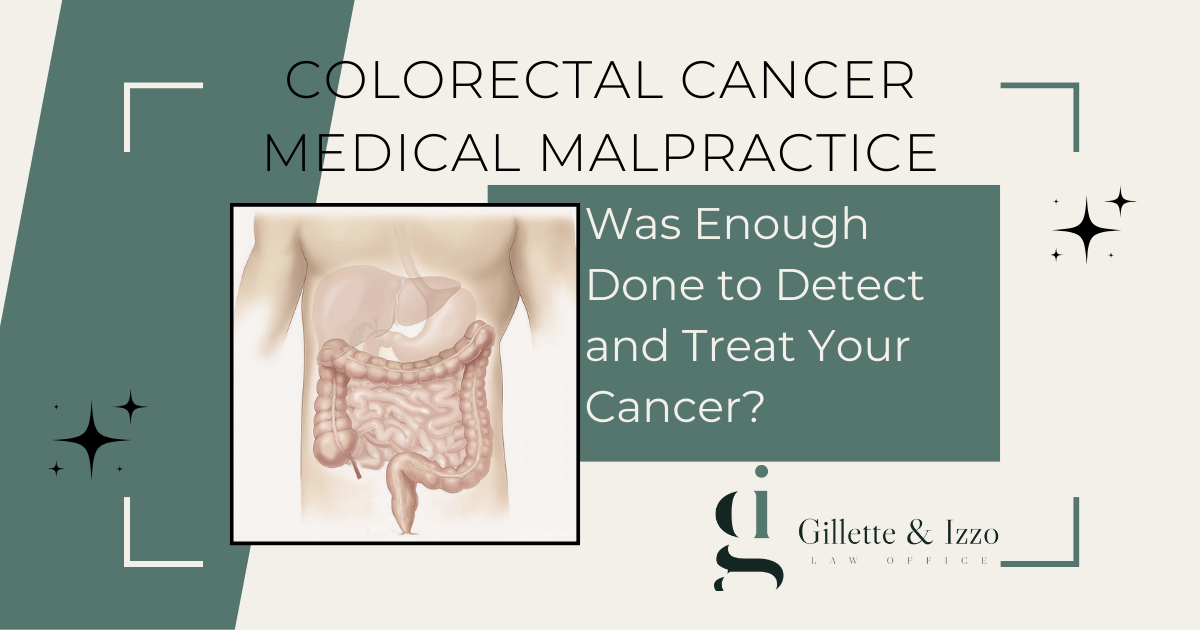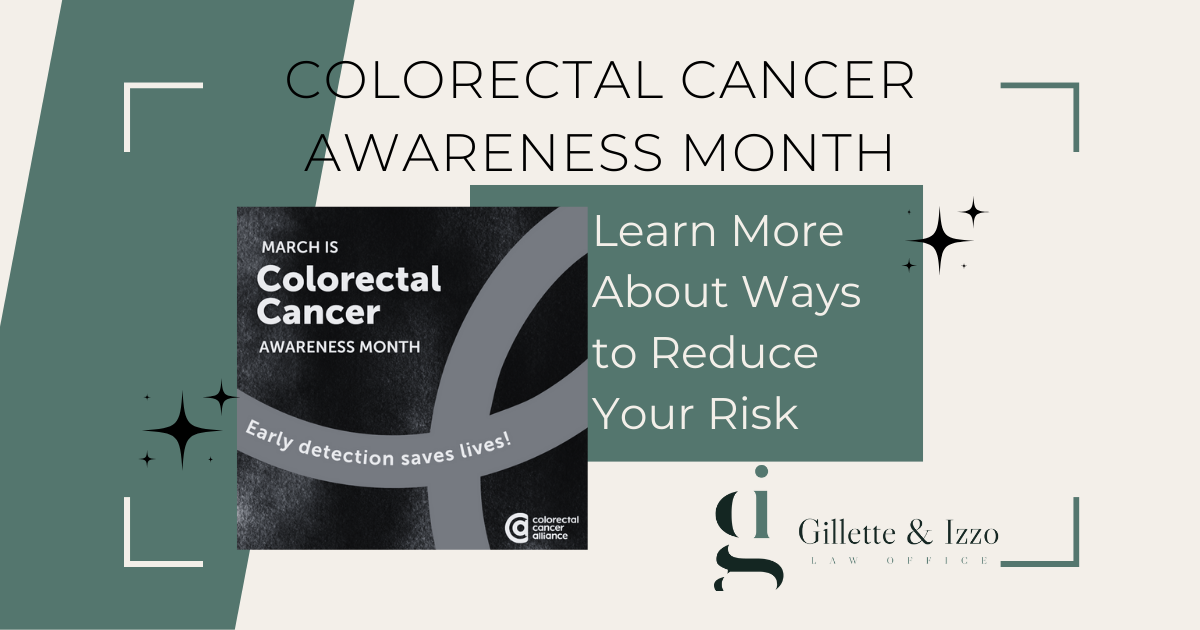Colorectal cancer is one of the leading causes of cancer death for both men and women in the US. While this disease is most frequently found in people over 60 years old, the prevalence in younger adults is on the rise. Preventive measures are promoted as the best way to reduce risk, but what happens when a doctor’s mistake leads to harm or complications?
What is Colorectal Cancer?
Colorectal cancer is a term for cancers that begin in the colon and rectum. These cancers are generally grouped and discussed together due to their similarities, so the combined name of colorectal cancer is often used.
Many people with colon or rectal cancer do not notice any symptoms at first. When symptoms do appear, how they present will depend on the type of cancer and the stage or size. Screening for colorectal cancer is an effective preventive measure, but monitoring your health and bowel movements is also helpful.
Medical Malpractice and Colorectal Cancer
Medical malpractice claims involving colorectal cancers are common. Many stemming from a failure to detect the disease soon enough or at all. Symptoms associated with colon and rectal cancers can be present in numerous other conditions, such as irritable bowel syndrome or Crohn’s disease. However, doctors may still be guilty of malpractice if they incorrectly diagnose a patient because they didn’t obtain a thorough medical history or perform necessary tests.
Not every mistake is considered medical malpractice, though. When your doctor, nurse, radiologist, or other medical professional does not treat you with the proper standard of care, they may be held responsible for any harm their act or omission caused.
Radiology Errors
Radiologists are commonly involved in colorectal cancer screening and play a major role in numerous types of tests, including:
- CT colonography
- Double-contrast barium enema
Early detection is crucial, which means radiology errors can be especially dangerous. Common mistakes made by radiologists are:
- Misreading X-rays or CT scans
- Failing to recommend additional diagnostic testing
- Not communicating the test results to the doctor
- Injuring a patient during a screening
If a medical mistake kept you from accessing the care you needed for your cancer treatment, a malpractice claim may be an option to recover damages.
Every moment counts in cancer diagnosis and treatment, and delayed detection means increased risk. If you believe your doctor committed medical malpractice involving your colorectal screening or care, contact us. Let us help you.





